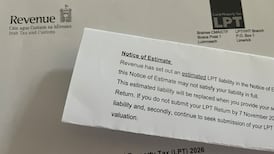If 2025 will be remembered for anything, it will be as the year music went backwards. Oasis flogged us nostalgia by the overpriced bucket-hatful. Radiohead returned in a disappointing incarnation of just another band playing the hits. November welcomes the umpteenth Beatles documentary (and umpteenth tie-in album). The gravitational pull of rock’n’roll’s yesteryears has become a crushing negative energy, dragging us all into a black hole of boomer and Gen X sentimentality.
Amid such depressive regression, how thrilling to encounter a record as fearless, confrontational and confidently unconventional as Rosalía’s Lux. That this is something other than just another pop LP is signalled on the cover, where the Catalan artist is dressed as a nun, as if to announce that she has embarked on a new path and isn’t for turning.
The extraordinary sounds within bear that out. Across three previous releases, Rosalía has delved into flamenco, electronica and reggaeton – and become a huge star, particularly in the Spanish-speaking world. But she rips up every preconception audiences will have had of her with this breathtaking odyssey into the further reaches of experimental music, one that marks her as an heir to Björk (who passes on the baton as she pops up on the rambunctiously odd single Berghain).
“Lux” means light in Latin, though Rosalía offers little in the way of upfront illumination across 15 agreeably baffling tracks (or 18 on physical editions) that see her singing in Spanish, Catalan, Japanese, Ukrainian, Hebrew, Chinese, English and German. That linguistic grandiosity is matched by the music, which pivots from minimalist chamber pop to Andrew Lloyd Webber balladry via Aphex Twin-style ambient noodling.
READ MORE
It’s stunningly avant-garde – although the initial effect is perhaps overwhelming as Rosalía’s voice flutters in and out of earshot, and strings shriek and soar.
One person’s pioneering is another’s pretentious, and Lux is not for the faint of heart or anyone who feels strongly that pop peaked when Coldplay started to perform with puppets. To that end, there was almost something too metaphorical about Rosalía’s recent attempt to livestream the launch of the album in Madrid, only for her to get caught in traffic as fans flocked to the event. She was literally bogged down in her own ambition.
As with many challenging and unorthodox undertakings, Lux requires the listener to put in the work. It is worth the effort, however. The opening track, Sexo, Violencia y Llantas (Sex, Violence and Tyres) is a stark piano piece that builds slowly, swerving from Eurovision-style torch song to Enya-style ethereal pulsations.
An altogether different effect is achieved by Divinize, a beautifully creepy ballad where atonal instruments push against Rosalía’s bruised singing and a skittish, uneasy beat.
Rosalía Vila Tobella is clearly not an artist to do things by halves. There are moments when you wonder if she wouldn’t be happier to be making a prog-rock album in 1976. But at a time when so much in music is about looking backwards, how inspiring to have an artist who wants to push on – with results that are by turns thrilling, baffling and splendidly spooky.














